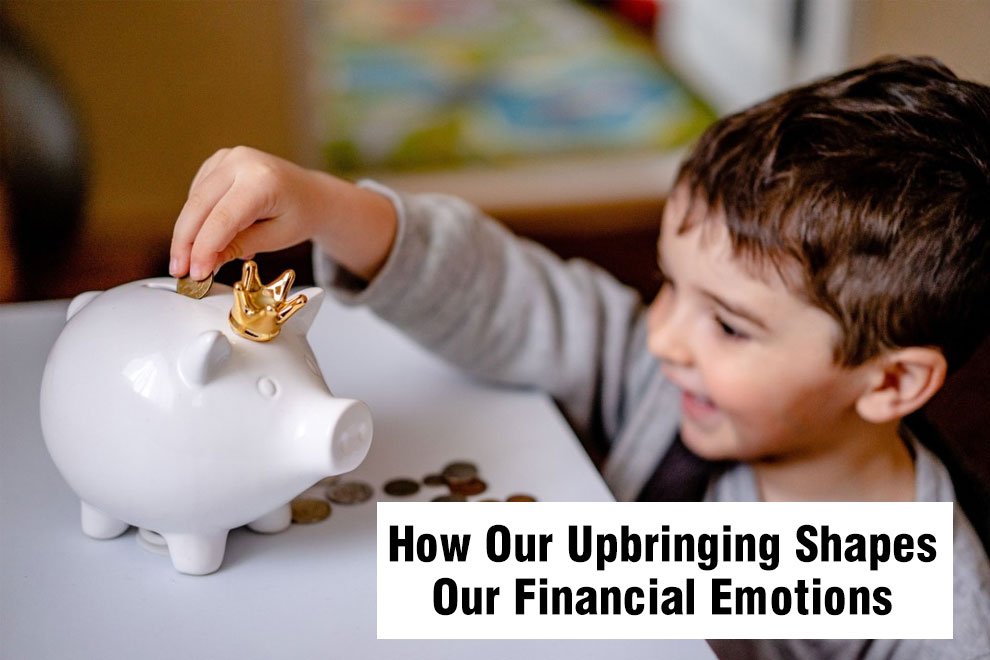Our relationship with money is often influenced by experiences and lessons learned from childhood. Whether we grow up with financial stability or struggle with financial uncertainty, the environment we’re raised in shapes the way we feel and think about money throughout our lives. For some, money is a source of anxiety, while for others, it may be viewed with indifference or even carelessness. Recognizing how our upbringing affects our financial emotions is a key first step in understanding and managing our money in healthier ways.
In some cases, childhood financial stress may lead people to seek options like debt consolidation as an adult, hoping to gain control over their finances. For others, a more carefree attitude about money may result in challenges down the road, especially when it comes to saving and budgeting. Whatever your financial background, understanding the emotional undercurrents tied to your money habits can help you build a more balanced and positive relationship with your finances.
The Anxiety of Financial Scarcity
Money doesn’t just impact our material lives; it can significantly affect our emotional well-being. If you grew up in an environment where money was scarce or constantly a source of tension, it’s likely that you developed a deep-rooted fear or anxiety about finances. This emotional response to money can carry into adulthood, often without us realizing it. When you hear constant discussions about not having enough money or watch family members struggle to pay bills, the emotional impact is hard to ignore.
This kind of upbringing can cause a person to internalize the belief that money is something to be afraid of, something that can easily run out. As an adult, you might find yourself overly cautious about spending, hoarding money, or making financial decisions out of fear. The worry that “you’ll never have enough” can lead to stress and anxiety that affects other areas of life, like your health, relationships, and even career.
One way that this fear can manifest is through an inability to invest or take financial risks, even when the situation calls for it. A person with this mindset may hold on to money too tightly, missing out on opportunities for growth or the chance to improve their financial situation in the long term. If you grew up with this kind of financial tension, it’s important to acknowledge these emotions and find ways to work through them to prevent them from hindering your financial well-being.
A Carefree Approach to Money
On the other side of the coin, children who grow up in environments where money is abundant or treated casually might develop a very different relationship with finances. In these homes, money often flows freely with little restraint or discussion about budgeting, saving, or managing expenses. For these children, money becomes less of a concern and more of a tool for living in the moment.
As adults, people who grew up in these types of environments may approach their finances with a sense of carefreeness or even a spendthrift mentality. The idea that money is meant to be spent and enjoyed can lead to impulsive decisions, like buying things on a whim or living paycheck to paycheck. Without the sense of financial discipline and foresight, they may struggle with saving for the future or preparing for unexpected financial challenges.
While there’s nothing wrong with enjoying life and spending money on things that bring happiness, the lack of discussion or understanding around saving and planning for the future can create problems. This carefree attitude towards money can sometimes result in debt, especially if spending exceeds income or if financial emergencies arise unexpectedly.
If this is your experience, it’s important to strike a balance—enjoying the present while also considering long-term goals, building savings, and planning for a more secure financial future.
The Role of Financial Education (or Lack Thereof)
Regardless of whether you grew up with financial abundance or scarcity, one common thread is the role that financial education—or the lack of it—plays in shaping our emotional responses to money. In many households, money is a taboo subject or one that is only discussed when things go wrong. If you weren’t taught how to budget, save, or manage money, you might not have developed the skills or mindset necessary to approach your finances with confidence.
For those who were never taught these financial skills, the result can be a lack of preparedness when it comes to managing money as an adult. This gap in knowledge can lead to feelings of inadequacy or fear when facing financial decisions, whether it’s how to save for retirement or how to consolidate debt. Financial anxiety often stems from not knowing how to handle money effectively, which is why financial education is key to building a healthier relationship with finances.
Conversely, if you grew up in an environment where money was openly discussed and you learned important financial skills, you’re likely to approach money with more confidence and a clearer understanding of how to manage it. The ability to budget, save, and make informed financial decisions can help you feel more secure and in control, which directly impacts your emotional well-being.
Building Healthier Financial Habits
Understanding how your upbringing has influenced your emotional response to money is the first step in breaking any negative financial patterns. Whether you grew up in a home with financial stress or one where money flowed freely, taking active steps to build healthier financial habits is crucial for your mental and emotional health.
Here are a few ways to begin addressing the emotional side of your finances:
- Acknowledge Your Financial Emotions: Take the time to reflect on how you feel about money and why. Understanding the emotional triggers behind your financial decisions—whether they are rooted in fear, anxiety, or carelessness—will help you develop healthier habits moving forward.
- Educate Yourself About Finances: Financial literacy is key to managing money with confidence. Consider learning about budgeting, saving, and investing. Resources such as books, online courses, or financial advisors can help you build a solid understanding of money management.
- Create a Financial Plan: One of the best ways to combat financial anxiety is to have a plan. Start by setting clear goals for your finances, whether it’s paying off debt, building an emergency fund, or saving for retirement. Having a structured plan can help alleviate the stress of uncertainty and provide a clear path forward.
- Take Small, Consistent Steps: If you’re struggling with debt, options like debt consolidation can help simplify your payments and lower your stress levels. Regardless of your situation, start with small changes. Each step you take will build your confidence and reduce financial anxiety.
- Seek Support if Needed: If financial anxiety or stress is overwhelming, consider seeking professional help. Financial counselors or therapists who specialize in money-related stress can offer valuable guidance and support to help you manage your emotions and finances.
Also Read: Why It’s Never Too Early to Start Thinking About Financial Security?










